Subscribe:
Stay up to date with all upcoming ARISE programs, conferences, awards, and initiatives through our public calendar.
Subscribe:
Stay up to date with all upcoming ARISE programs, conferences, awards, and initiatives through our public calendar.



As a mother and someone closely related to the education sector, I have often wondered what the role of an educationist is, in these changing times.
I recently had the privilege of attending the FICCI Arise- Education 3.0, summit. The summit emphasised the changes the education sector needs to undergo to stay relevant, and was attended by several educationists and other industry leaders presenting a variety of views.
Some educationists felt that this being the “Alexa generation”, it is needed for us to focus on specialisation, remove redundancies and prioritise skill development, from the beginning. Mr. Unnikrishnan—MD and CEO, Thermax Ltd.—painted the picture of a Matrix-like situation where machines and software will rule the world within the next few years. He gave an example of how automation and machines are taking over factories, leaving many people jobless. He suggested that a human brain is fully developed by age 8, and hence should be trained early, with kids learning programming and engineering and other skill-based subjects, early in life. While I will debate the former point a little later in the article, the latter was well countered by Mr. Manit Jain—Director, Heritage School—when he suggested that a child needs to be taught good values and life skills first, with vocational training following only later.
Our system is so workforce-oriented that we don’t leave room for holistic learning and nurturing conscientious people.
While I accept that the change is rapidly seeping in and machines are becoming more important, it’s reductionist to think that they can replace people. I feel machines lack perspective, depth, rational thinking, personality development, problem solving and creativity. No matter how good we get at coding and machine learning, machines will never be able to add value like humans do. Look at the difference between a hand-woven sari and one from a power loom, or the sweets that are manufactured by the automated factories of Bikanerwala and Haldirams and those that are freshly made at the neighbourhood sweet shop. While automation does increase output, reduces cost, minimises flaws, and offers a standardised product, individuality will always be in vogue. Handcrafted goods—more perfect than machine goods because of their imperfections—will always have a market and be sold at a premium. However, this isn’t a discussion about machines and humans. I am sure, like in the past, the advent of machines will continue to open new job avenues for humans. What we need to focus on is having enough well-rounded, happy and rational people to control these machines.
In a discussion on best practices, in which international industry experts shared their perspectives, Ms. Satu Järvinen, from the Koulu Education Group in Finland, shared some of the secrets of the famous Finnish education system. She drove home the point that educators there see themselves as “developers of learning outcomes to create good, happy citizens.”
In my opinion, this is where India’s problem lies. As a country, we don’t focus enough on the happiness of the child (as reflected in our examination system)—all we focus on is the needs of the industry. Hence the assembly line approach towards education. Our system is so workforce-oriented that we don’t leave room for holistic learning and nurturing conscientious people. Our children are so busy chasing marks (while also often grappling with poor pedagogy) that they don’t have the time to really absorb what they are being taught.
Our children are so busy chasing marks (while also often grappling with poor pedagogy) that they don’t have the time to really absorb what they are being taught.
In my opinion, if we start working towards creating happy citizens, we will be able to customise education even in a diverse country such as ours. This customisation is needed at least at the primary school level, while the standardisation and bringing every student to the same level can happen at the high school level. Currently, we have a very high percentage of students in class 5 who cannot read a class 2 textbook. Our school dropout rate is extremely high. For example, enrollment in class 10 is 77%, but this dwindles to 52% in class 11. The gross enrollment ratio of 24.5% in colleges is an improvement from past years, but it is still a poor number. We have the brains, but the education system is not only elusive, it isn’t customised for the mini societies we have in our country.
My faith in happiness being the key to drive education, was further reinforced by Ms. Kalthoom AlBalooshi, Executive Director of the Education Department, Knowledge and Human Development Authority, Dubai. She said that they had started measuring happiness levels of all children in school, and used that as the metric to evaluate schools and the pedagogy used. Changes in teaching pedagogy remarkably enhanced the performance levels in children and their attitude towards learning.
Someone in the midst of the session asked the question I started this article with—”what is the role of the educator in these changing times, as everything can be Googled?” This was aptly answered by Kevin J. Ruth, CEO, Education Collaborative of International Schools: “The role of teachers, in these changing times, is to diagnose (what a child needs and where there is scope for growth), and then facilitate the growth or change in the individual.”
There ought to be a good amount of focus on building a strong value system, personality development, rational thinking, problem solving and creativity…
In my opinion, our pedagogy needs to evolve keeping happiness as the key, catering to the different needs of different children. We also need to work on using a better evaluation system that does not necessitate learning by rote for exams. While I agree that our education system needs to remain relevant in changing times, we mustn’t over-prune our syllabus, as much of it, even if it doesn’t correspond to any direct use in our respective vocations, does help in building perspective. In my opinion, in a world that has been taken over by machines, perspective will be highly valuable—possibly the only element that keeps us from the fate the movie Matrix presented. I also feel our educators have the responsibility to prepare the child for the next 50-70 years or more, in a short span of 20 odd years.
Since these 20 years are the foundation of a child’s life, there ought to be a good amount of focus on building a strong value system, personality development, rational thinking, problem solving and creativity, along with the topics taught in the class room and the technology used to deliver them.